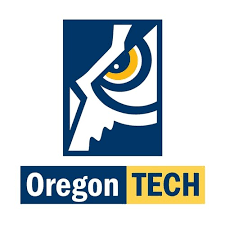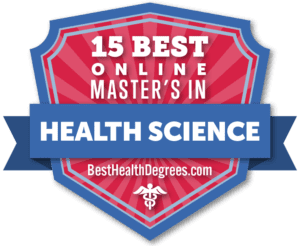
There’s never been a better time to consider an online health science master’s! The Coronavirus/COVID-19 global pandemic put health sciences careers in the spotlight, especially healthcare leaders such as those with a Master of Science in Health Sciences (MSHS).
Originally published in March 2020 and updated in December 2023
All aspects of healthcare were affected by the crisis. Research laboratories, public health officials, healthcare administrators, and others, brought leadership and solutions to the issue.
Unfortunately, this isn’t the first, nor the last time that healthcare in the U.S. will be strained. If you’ve considered earning a Master’s in Health Sciences, now is the time.
Best Health Degrees has researched some of the best online MSHS degrees available as a starting point for your school search.
Our Method: Ranking the 15 Best Online Health Science Master’s Degrees
To rank the 15 Best Online Health Science Master’s Degrees, BestHealthDegrees.com’s editors researched accredited and trusted programs of all kinds. From our initial pool, we ranked programs according to price, accreditation, reputation, and salary potential, using data from IPEDS and Niche, U.S. News and World Report, and other higher education rating publications.
1. University of Central Arkansas
Master of Science Degree in Health Promotion

Located in Conway, Arkansas, The University of Central Arkansas is considered one of Niche’s “Top Public Schools.” You can receive an online Master of Science in Health Promotion degree.
This 36-credit hour program can be completed in one year (see the school’s website for specifics) and offers a thesis and non-thesis option. You’ll need to complete the CHES/MCHES certification exam successfully.
You’ll study health subjects in administration, epidemiology, biostatistics, program planning and evaluation, and more. Electives include topics in grant writing, aging, drug education and prevention, curriculum and instruction, etc.
Admission is competitive and you’ll need to submit GRE scores and hold an undergraduate degree with a minimum 2.7 GPA. There’s no tuition residency requirement for online students. The university is accredited by the Higher Learning Commission (HLC).
2. The University of Memphis
Master’s Degree in Health Promotion

The Department of Health Studies at the University of Memphis offers an MS in Health Promotion degree through UofM Global.
This interdisciplinary, 30-credit hour online health science master’s degree concentrates on health promotion foundations, research, and evidence-based practice. The interdisciplinary nature of this program will prepare you to pursue a career in health promotion as a wellness specialist, public health advocate, or health educator.
The curriculum also provides a pre-professional concentration for further education in medicine, dentistry, pharmacy, and other allied health careers. Coursework includes epidemiology, research methods, disease prevention, health intervention, etc. You’ll also either complete a thesis or an applied project for this degree.
Admission requires a baccalaureate degree with evidence of coursework in biological social, and behavioral sciences. This program will prepare you to sit for professional certification exams, such as the National Commission for Health Education Credentialing Inc. (NCHEC).
3. Cleveland State University
ONLINE HEALTH SCIENCE MASTER’S (MSHS)

If you’re currently working in healthcare and want to advance your career into an administrative and leadership role, you may want to consider the online Master of Science in Health Science program.
A 36-credit hour program, the multidisciplinary, robust, online health science master’s is taught by a faculty from medicine, nursing, public health, psychology, and more. You’ll take core courses and select a concentration in the areas of research, education, program development, or assessment. You can choose between a thesis or non-thesis track and combine one of CSU’s certificate programs with the MSHS.
Acceptance to this program requires DAT, GMAT, LSAT, MCAT, or PCAT scores, a UG degree with a minimum of 2.75 GPA, a CSU application, letters of reference, and academic transcripts.
4. Oregon Institute of Technology
master’s degree in Allied Health
Niche considers Oregon Tech one of its “Best Value Colleges in America” and U.S. News and World Report concurs ranking the school “Best Value Schools” and “Top Public Schools.”
This Master of Science in Allied Health degree is offered online and offers three specialty tracks. You can choose from Respiratory Therapy, Dental Hygiene, or Healthcare Leadership tracks.
The online health science master’s degree requires 49 credit hours for completion and includes core coursework along with your concentration area. The Allied Health core curriculum covers classes in information technology, leadership teams, finance and economics, evidence-based research, and a capstone project or thesis.
You need a background in healthcare, an undergraduate degree with a 3.0 GPA, GRE or MAT scores, academic transcripts, etc., for admission.
5. Lock Haven University
Master of Health Science
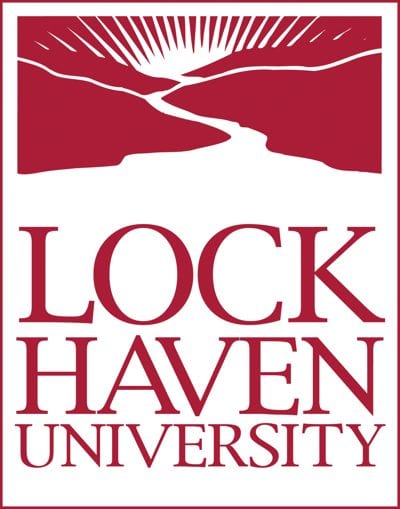
Perhaps a little-known Pennsylvania university, Lock Haven University shouldn’t be overlooked. Ranked as a “Best College for Your Money” by Money Magazine and known as “The Haven,” this school has a 100% online Master of Health Science degree.
This online health science master’s program is developed for working healthcare professionals looking for a Healthcare Management specialty. You’ll take 36 credit hours in the core areas of ethics, finance, leadership, and organizational behavior. After the program, you’ll participate in an advanced field experience and choose between a capstone project or a thesis.
To be considered for admission, you’ll submit an online application, demonstration of an undergraduate degree, personal mission statement, letters of recommendation, and academic transcripts.
6. University of Saint Francis
Master of Healthcare Administration

The University of Saint Francis, located in Fort Wayne, IN, offers an online Master of Healthcare Administration you can complete in 12 months (full-time) or 24 months (part-time).
This 36-credit hour online health science master’s program includes healthcare studies in economics and finance, strategic management, law and ethics, the U.S. healthcare delivery system, etc. As the school website says, this is a values-based curriculum.
Washington Monthly names SFU one of its “2019 Best Bang for the Buck: Midwest.” As an online student, you’ll be assigned a dedicated Support Coach. Additionally, you’ll be able to access the 24/7, Smarthinking Tutoring Service. You’ll also be eligible to participate in the USF mentoring program. Tuition assistance is available for members of the military.
7. University of Nebraska
Master of Public Health

If you have one or more years of experience in healthcare and have an undergraduate degree, you may want to investigate the online Master of Public Health program at the University of Nebraska.
UN offers several concentrations with this program in Health Services Administration, Health Promotion, Environmental and Occupational Health, and more. This program requires 42 credit hours for most of the concentrations.
There’s no residency requirement for tuition for the online degree. You’ll need to submit GRE scores, academic transcripts, letters of recommendation, online applications, etc. to be considered for admission.
8. Rutgers University
Master’s of Health Sciences – Aging Track

If you’re a health professional with an interest in working with the aging population, the Master of Health Science, through Rutgers’ School of Health Professions (SHP), will help you do that.
Offered completely online, you’ll follow the MSHS’s aging track, explore evidence-based research, and do a clinical project, applying what you’ve learned to a real-world situation. You’ll complete studies in gerontology, patient advocacy, physical changes in aging, social policy, aging, mental health, etc.
Rutgers also offers a graduate certificate which requires 15 credit hours and is for working healthcare professionals. Certificate hours can be applied toward the MS degree if you choose. You don’t have to take the GRE for this program, but you do need an undergraduate degree with at least a 3.0 GPA. An essay, academic transcripts, resume, and letters of recommendation are also required for admission.
9. University of Maryland Global Campus
MHA

Looking to advance your management and administrative skills in healthcare? You may want to consider the online MS in Healthcare Administration.
This is a 42-credit-hour online health science master’s program that focuses on current healthcare trends, enhances your budgetary skills, and understands statistical analysis of health information, as well as business planning and state and federal regulations.
Some of the classes you’ll take include the U.S. Health Care System, Business of Healthcare, Public Health Administration, and a Health Care Administration Capstone Project. The school recommends that if you’re unfamiliar with certain finance and accounting principles, you take some prerequisite courses offered through UMGC’s online programs.
Completion of this degree will prepare you to sit for the Fellow of the American College of Healthcare Executives (FACHE) certification exam.
10. Medical University of South Carolina
MS in Health Informatics

Dating to 1824, the Medical University of South Carolina is one of the oldest, continually operating medical schools in the country! Today, MUSC has kept pace with healthcare and education innovation and offers a hybrid MS in Health Informatics.
This Commission on Accreditation for Health Informatics and Information Management Education (CAHIIM) accredited program can be completed in 36 credit hours. You’ll be qualified to serve as a healthcare data analyst, CIO, or implementation specialist in the industry.
The curriculum covers a wide range of topics in applied health informatics, healthcare management/operations, management of databases, and foundational health informatics. You have a choice between a thesis or a capstone project. While you’ll complete didactic courses online, you will be required to attend on-campus sessions once per semester.
These campus sessions occur in August, May, and January in Charleston, SC. Admission requirements are typical for graduate programs and the university offers a rolling application process. Prospective students can participate in a webinar detailing the informatics program.
11. Massachusetts College of Pharmacy and Health Sciences
Master of Health Sciences
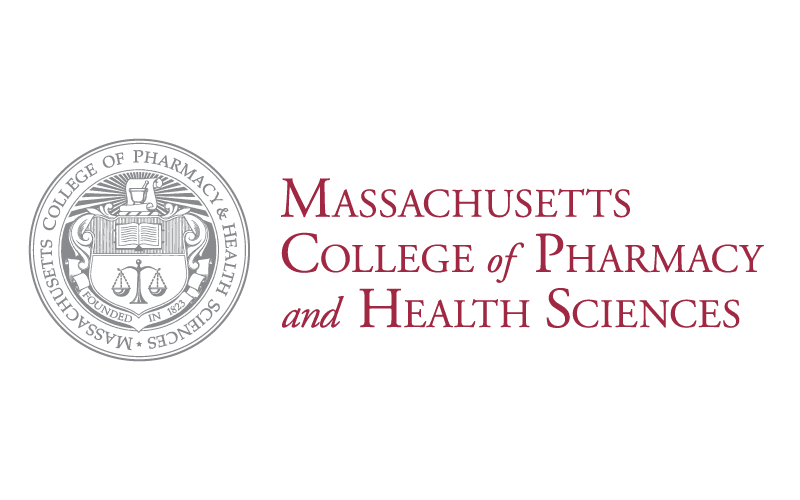
Here’s an online, part-time degree in Master of Health Sciences which is ideal if you want to be a health sciences educator. As a part-time program, it will take two years to complete.
The curriculum offers topics in Curriculum and Course Design, Assessment and Evaluation of Teaching and Learning, Principles and Theories of Teaching and Learning, Educator Competencies, and others for a total of 30 credit hours.
You’ll obtain skills in health policy, global health, as well as health communication. The school’s admission process requires an undergraduate degree (preferably with a 3.0 GPA) and current experience or interest in healthcare.
12. The University of Rhode Island
MS in Healthcare Management

The state of Rhode Island may be small, but the University of Rhode Island is big in its recognition, ranking as a top public college/school by Forbes, U.S. News and World Report, and Money Magazine.
You can earn an Association to Advance Collegiate Schools of Business (AACSB) accredited MS in Healthcare Management. This degree is offered, through URI Online, can be completed in two years, and includes stackable certificates in “Health Leadership and Administration” and/or “Quality Improvement, Process Measurement, and Information Systems Management.”
According to the school website, you can complete both certificate programs, an elective, and a final practicum, and earn the MS in Healthcare Management. Enrolling in the degree program, you’ll complete 30 credit hours (including certificates) and cover topics in leadership, healthcare quality, data analytics, economics and finance, and marketing, as well as a practicum experience.
There are no prerequisites for this program, so you can enroll in any semester. Admission is straightforward, requiring a bachelor’s degree, GRE or MAT scores, application, academic transcripts, letters of recommendation, etc. If you’re a Rhode Island resident, you may qualify for a tuition waiver.
13. Canisius College
Master’s in Exercise Science (formerly known as Master’s in Health and Human Performance)
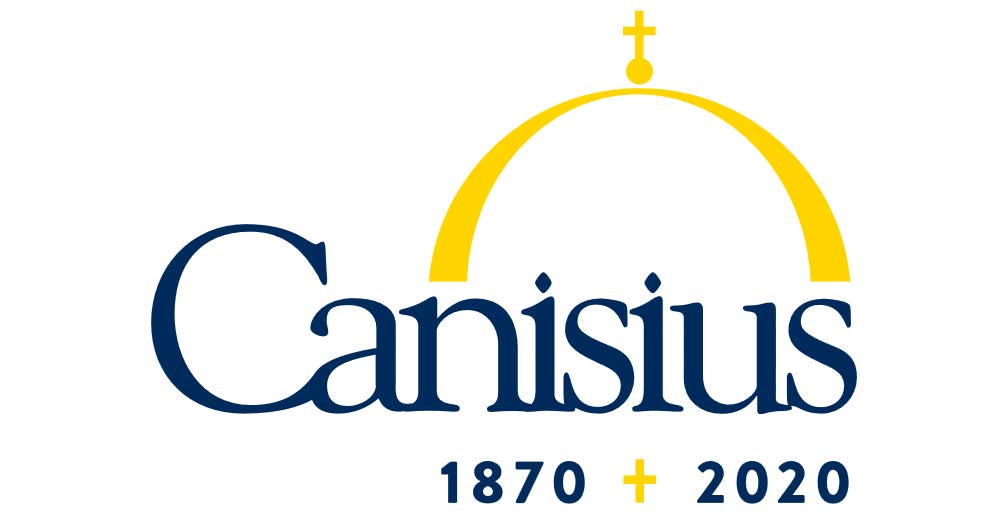
This private, Jesuit college was established in Buffalo, NY in 1870, Canisius College is proud of its “Best Value School” and “Best Colleges for Veterans” rankings by U.S. News and World Report.
The School of Education and Human Services has a hybrid Master’s in Exercise Science degree. The program is a good foundation for an advanced degree if you want to pursue a medical degree or become a licensed physical therapist.
This 35-credit hour curriculum includes core coursework in nutrition, epidemiology, research methods, data, statistical analysis, etc. Depending on your specialty, you’ll take concentration-specific courses such as Cardiopulmonary Pathophysiology, Health Promotion and Disease Prevention, or Fitness Psychology.
All students will complete either a Master’s Project or Internship (depending on specialty.)You’ll need to provide an official transcript for your bachelor’s degree and have prerequisite studies in nutrition, exercise physiology, anatomy and pathophysiology, and kinesiology. Additionally, you’ll need letters of recommendation and a current resume.
14. East Tennessee State University
Master of Science in Allied Health

East Tennessee State University’s College of Clinical and Rehabilitative Health Sciences, has an online Master of Science in Allied Health.
If you’re currently working as a healthcare allied health professional and want to take your career to the next level, this program may be for you. Dental hygienists, radiologic technologists, etc. will benefit from this program’s 36-credit hour curriculum.
Core courses required include information technology, legal and ethical issues, research methods, leadership theory, and more. You’ll then choose electives that best meet your career goals. The degree offers a thesis or non-thesis option. The Princeton Review named ETSU a “Best Southeastern School” and Niche considers it one of the “Top Public Universities in America.”
15. Excelsior College
Master of Science in Health Sciences

With the completely online Master of Science in Health Sciences program, you’ll prepare to lead teams, understand the ever-changing healthcare regulations and policies, develop conflict resolution skills, and more.
The program requires 36 credit hours and the college allows up to 18 transfer credit hours. You may be able to receive credit for currently-held healthcare licenses or certifications.
You’ll learn health assessment, diagnosis, treatment, and prevention, workplace safety, etc. The program offers a Public Health concentration, or the option to not have a concentration. The Public Health specialty will include studies in epidemiology, behavioral health, program planning, at-risk populations, etc. Both specialty/non-specialty options require a capstone project.
Why Should I Get My Health Sciences Master’s Online?
As colleges and universities closed due to the COVID-19 pandemic, it may be that even more classes will be offered online in the future. However, there are a variety of reasons to earn your MSHS online.
- The first is convenience. Colleges and universities have been offering accredited, online degree programs for decades and have perfected the delivery. Taking courses online allows you to receive your advanced degree without interrupting your work and home schedules. You can study on your timeline and at your own pace. You’ll also be taught by the same faculty who teach on-campus and your degree won’t indicate you received the degree online.
- The second reason is cost. You may not pay less tuition, but you frequently won’t be expected to pay out-of-state tuition, regardless of where you live. You’ll still be expected to pay certain fees in addition to tuition, however, but you won’t have the added expenses of travel, parking, textbooks, etc. Similar programs like a Masters in Healthcare Administration also have affordable online MHA programs.
- The third reason is time. You may be able to enroll in an accelerated degree program which will not only reduce the amount of time to earn your degree but will also save you tuition.
What Kind of Jobs Can I Get with a Master’s in Health Sciences?
Health Sciences is a multidisciplinary study and encompasses several healthcare areas; and, because the field is broad, so are the career options. A health science career can be clinical or non-clinical. Additionally, MSHS degrees are considered pre-professional degrees for students wanting to enter M.D., D.D.S., or PharmD programs.
Some of the clinical professions you can pursue with an MSHS degree include:
- Epidemiology
- Immunology
- Microbiology
- Clinical Management
- Research
An MSHS degree will also help advance your career in the fields of dental hygiene, occupational and rehabilitation therapy, nutrition sciences, various hospital technician positions, and more. In the non-clinical area, perhaps the most prevalent MSHS positions are in healthcare administration, education, and informatics.
For instance, in the realm of public health, the advanced Master of Science in Public Health is the educational gold standard. MPH-prepared health agency employees have the training and skills to analyze data, track trends, and educate the population on health concerns, such as we’ve seen with the 2020 pandemic.
Healthcare is increasingly complex with regulations and advanced technologies. A Master of Science in Healthcare Administration (MSHA) is required to manage and lead in ever-changing environments. Healthcare economics and finance, ethics, law, organizational behavior, etc. are the subject matters of an MSHA degree.
Healthcare Informatics is a critical field of inpatient care. An MSHS with a healthcare informatics concentration is needed to seamlessly blend medical care with technology. IT professionals develop programs to organize, analyze, and utilize data to improve patient care and healthcare delivery.
There are more advantages to an MSHS than listed here, but hopefully, it gives you an idea of the wide opportunities available.
How Much Can I Make with a Master’s in Health Sciences?
As with most healthcare careers, how much you earn will depend on your career. In general, though, the Bureau of Labor Statistics estimates those with a master’s degree earn approximately $40,000 more a year than those with a bachelor’s or associate degree.
Some salary examples, according to Zip Recruiter and Payscale, may give you a rough idea of your earning potential.
MPH careers may see a salary of $120,688 a year. MSHA positions may see a salary of $81,598 annually. A Healthcare Information Specialist could earn $50,321. Of course, these are estimates only.
On the clinical side, master’s prepared medical researchers could earn between $61,270 – $115,450 a year and clinical managers may see a salary of $84,260 – $110,460.
Salaries tell only part of the story. You also need to consider other compensation such as sign-on bonuses, 401k participation, paid leave, health insurance, and tuition assistance.
Related:
- 25 Best Health Science Master’s Degrees
- 10 Fastest Online Health Science Master’s
- Most Affordable Online Health Sciences Master’s
- 10 Most Affordable Online Health Sciences Master’s
Sources:
#UniversityofCentralArkansas #TheUniversityofMemphis #ClevelandStateUniversity #OregonInstituteofTechnology #LockHavenUniversity #UniversityofSaintFrancis #UniversityofNebraskaLincoln #RutgersUniversity #UniversityofMarylandGlobalCampus #MedicalUniversityofSouthCarolina #MassachusettsCollegeofPharmacyandHealthSciences #UniversityofRhodeIsland #CanisiusCollege #EastTennesseeStateUniversity #ExcelsiorCollege #ZipRecruiter(MPH) #Payscale(MSHA)
